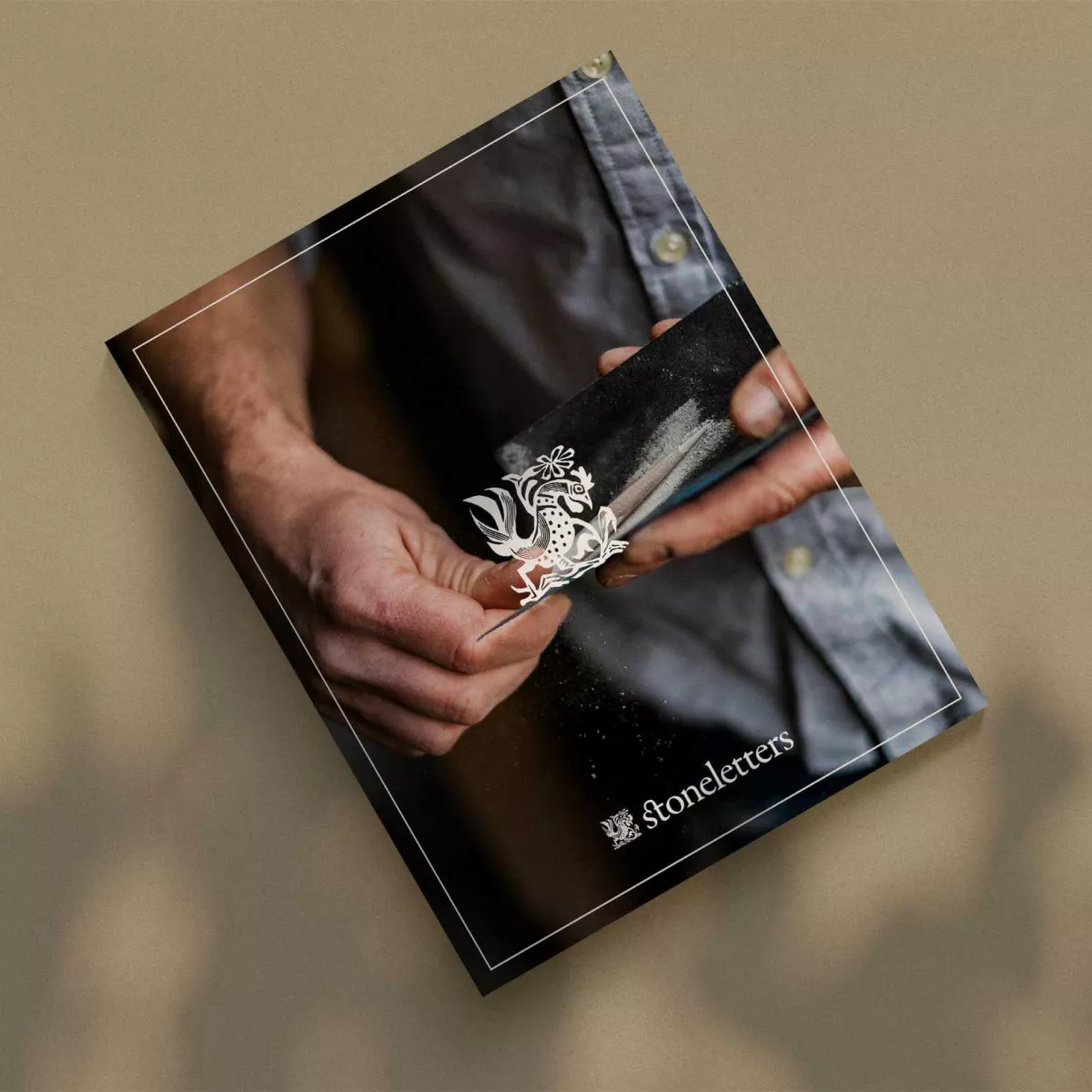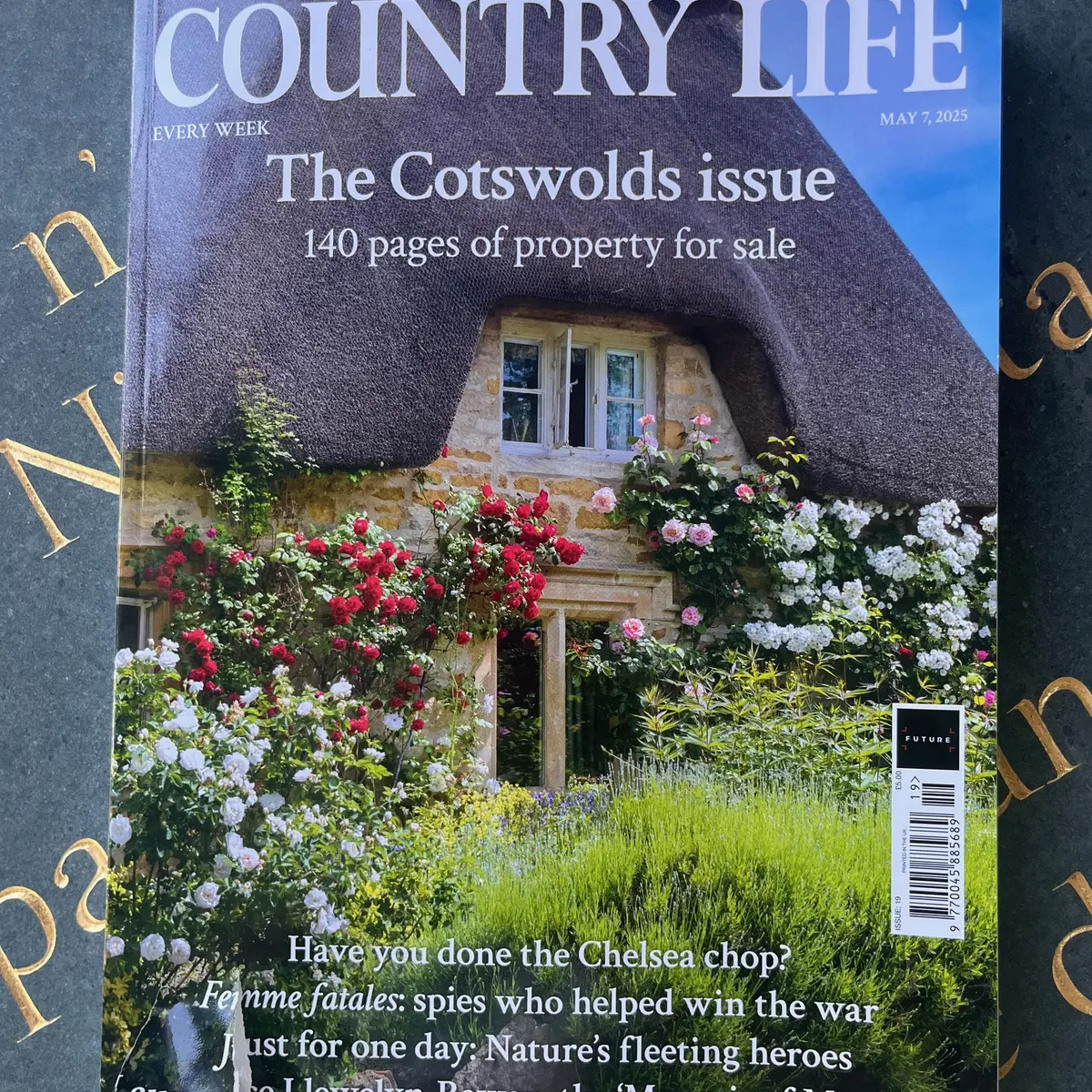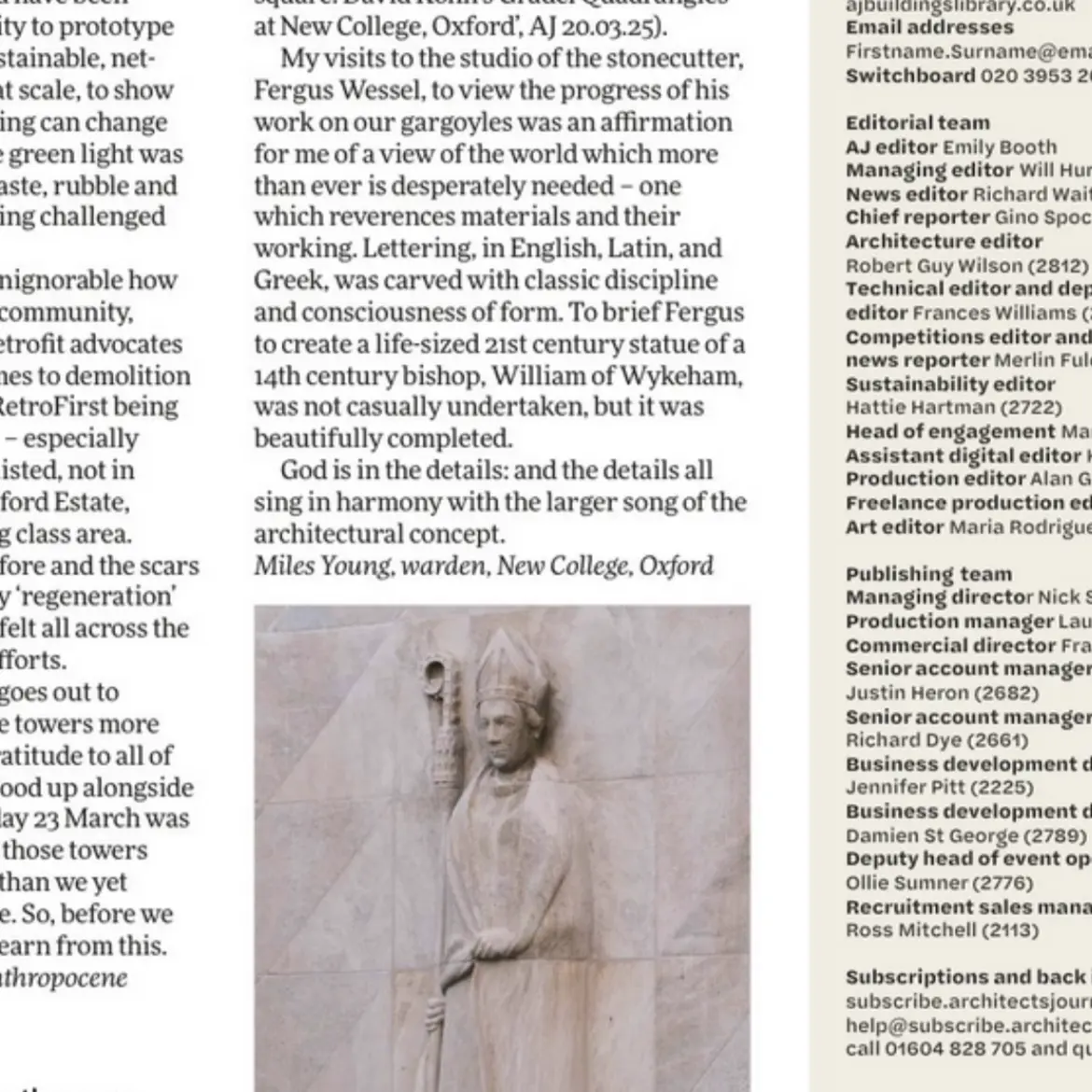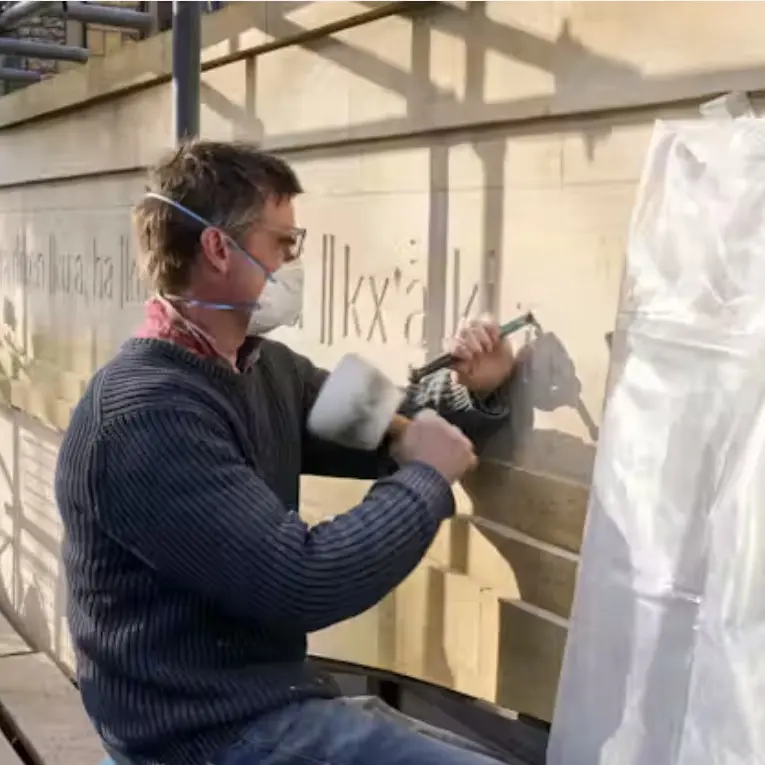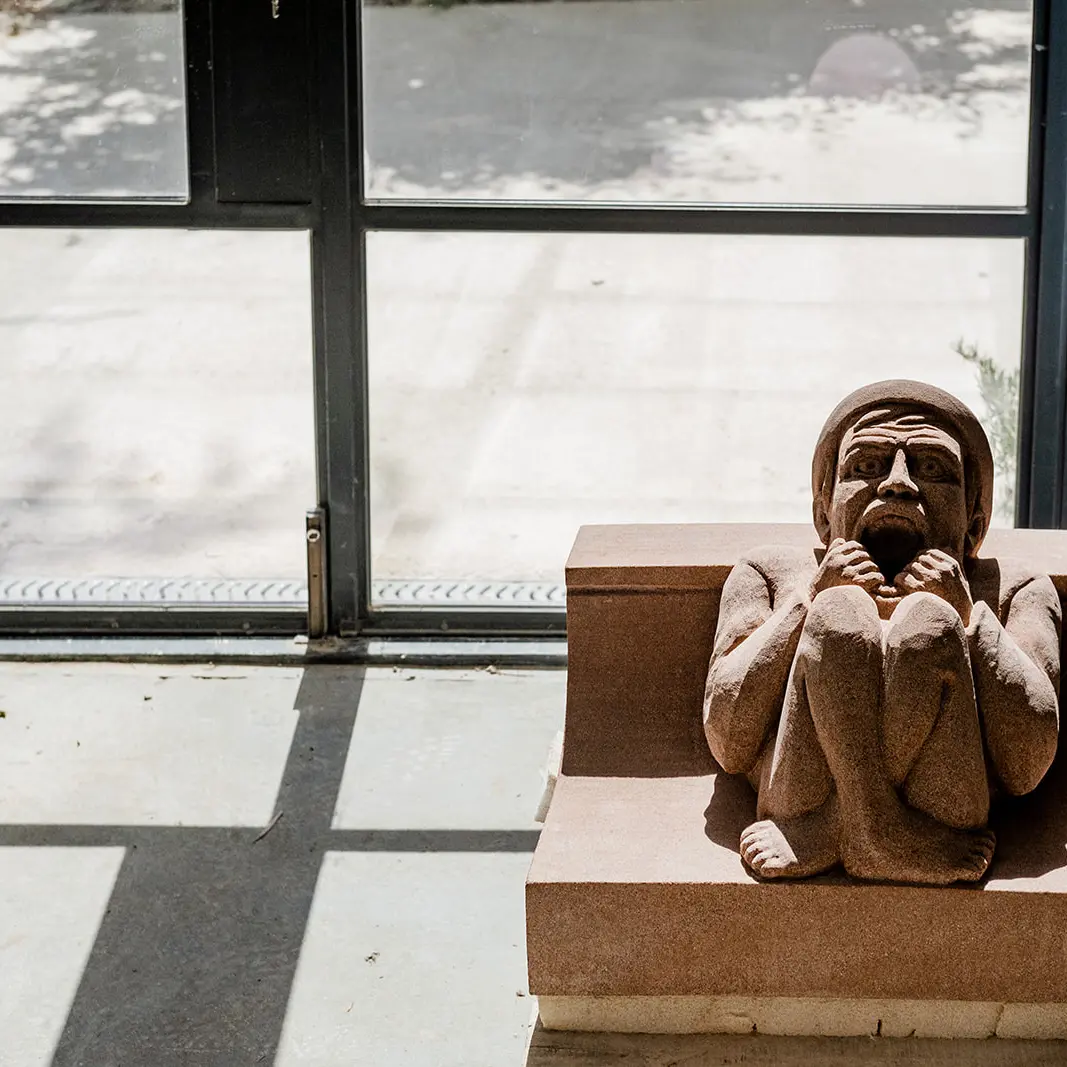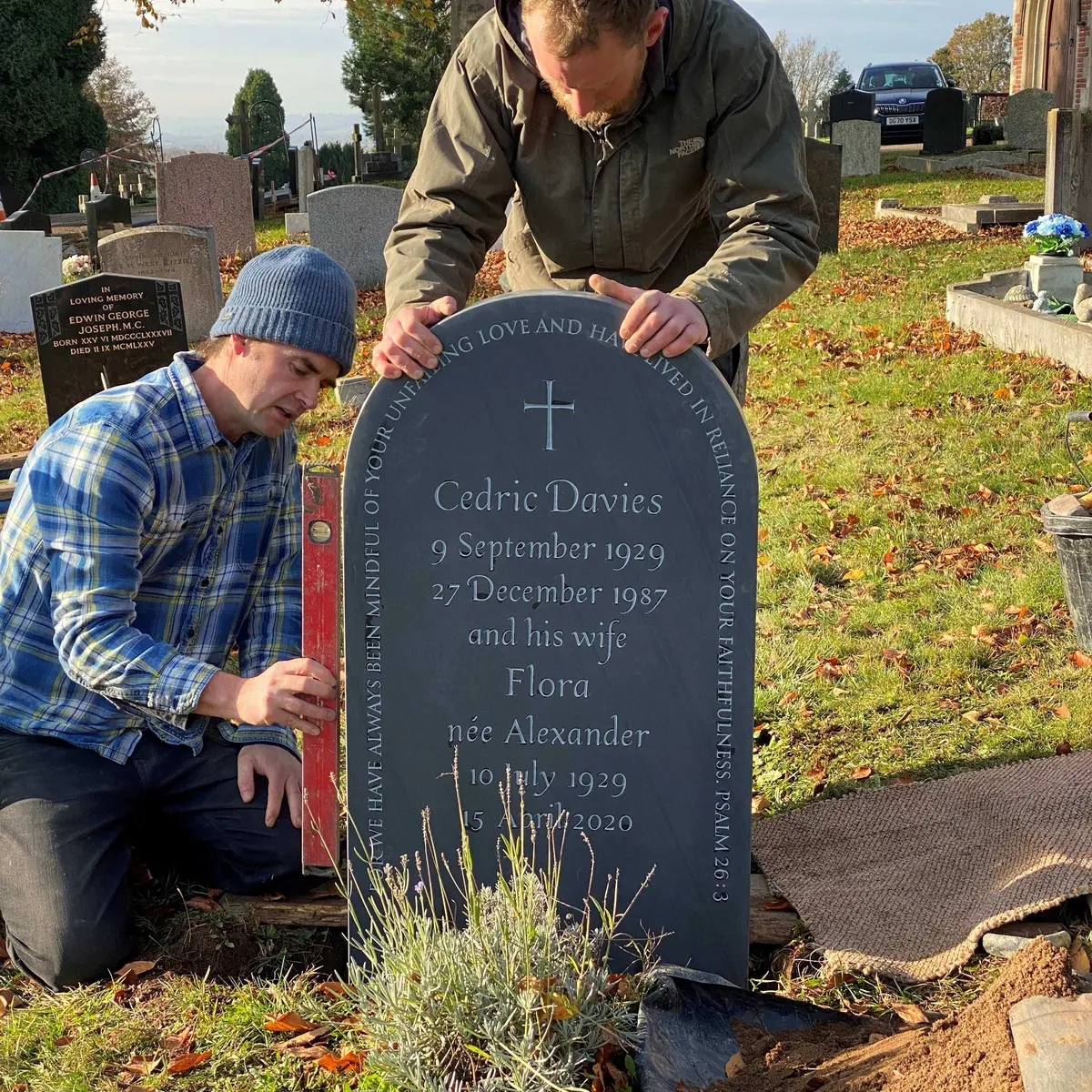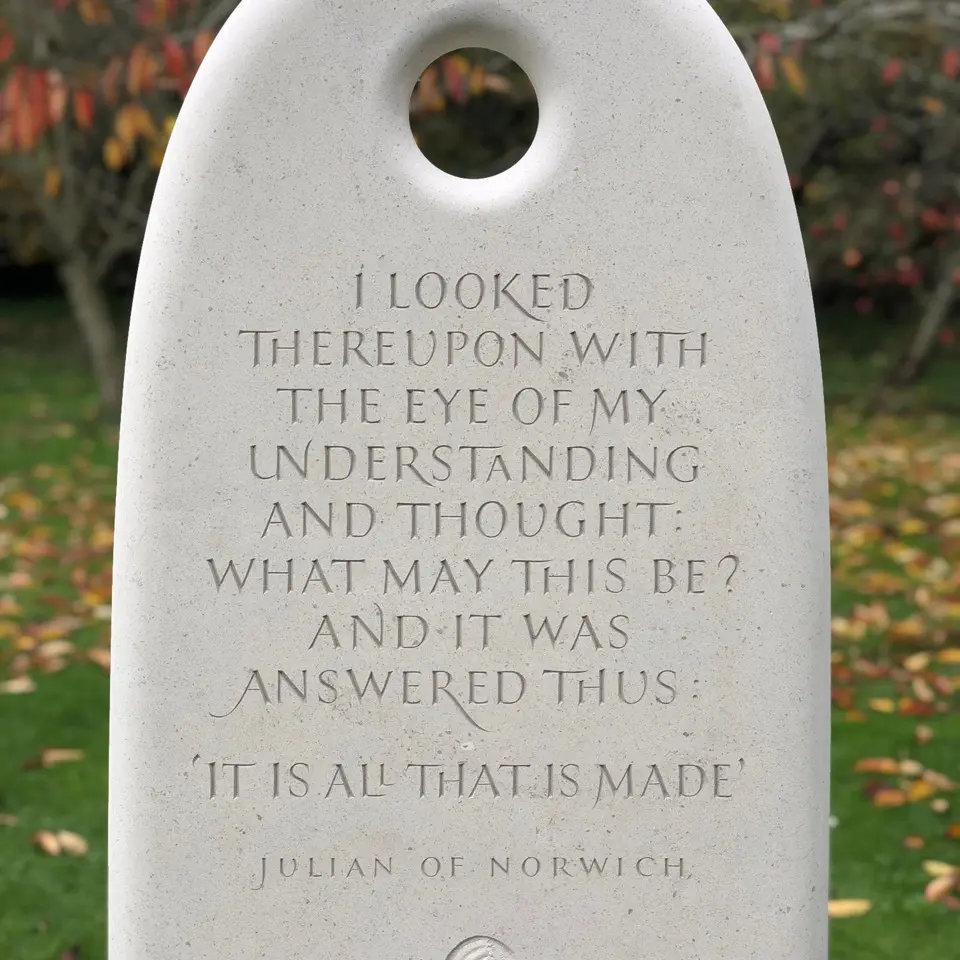By using this website, you agree to our privacy policy
×Contents
BBC Radio 4 Poetry and Headstones
Last month we were interviewed for Radio 4's Poetry Detective where Vanessa Kisuule investigates two headstones with mysterious epitaphs. It was a great honour to be chosen and a pleasure to be involved.
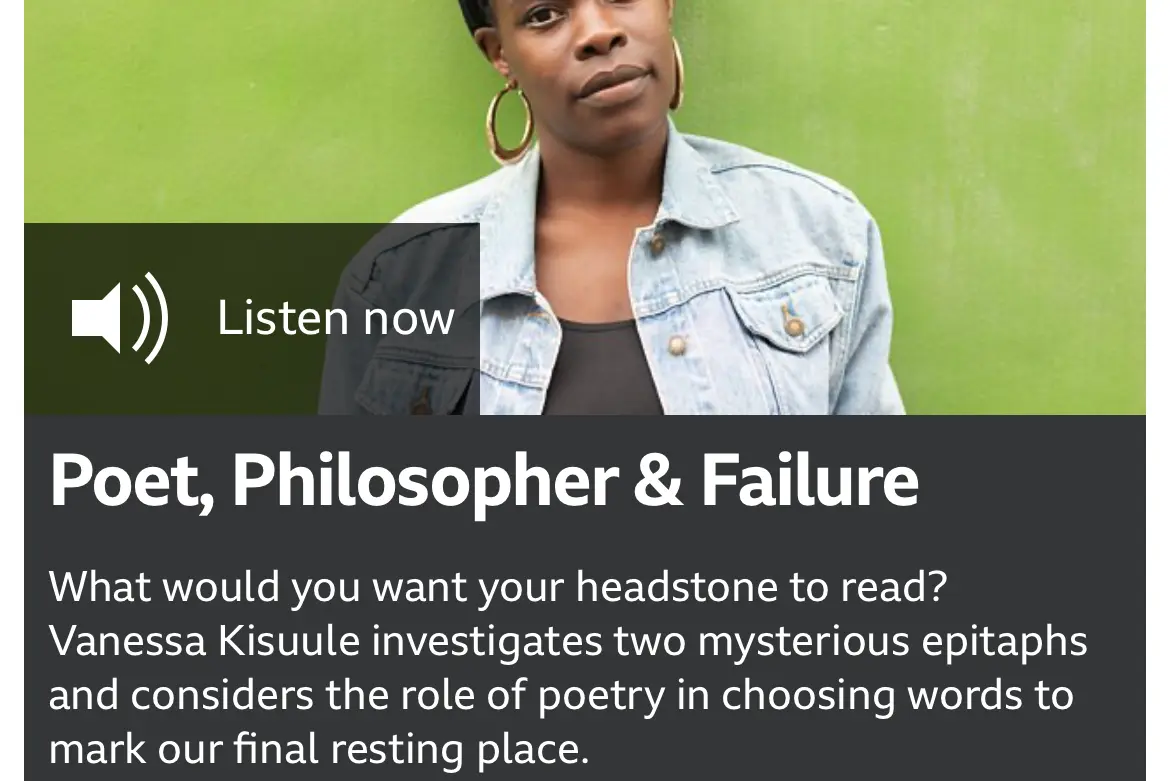
This fascinating Radio 4 programme investigates two headstones, one with the epitaph: Poet, Philosopher and Failure. What is the meaning behind such an epitaph? We were interviewed here in the workshop, to give our view into the purpose of an epitaph and how poetry can enhance a headstone and convey meaning beyond words. I particularly loved the poem
The programme is hopeful in reminding us that a headstone can serve to remind others of you long after you have gone. I love the ambiguity of an epitaph like the one above, and the conclusion was that it was probably a bit of a joke, a nod to the deceased eccentricity, for he was far from a failure in life.
The programme ends with a description of Alice Walker searching for the grave of Zora Neale Hurston, a famous novelist. Alice Walker worked tirelessly to revive interest in her work and commissioned a headstone for her grave.
Alice wrote this poem which she believes Zora would have liked and the programme ends with a beautiful recitation of this poem.
Be Nobody’s Darling
Be nobody’s darling;
Be an outcast.
Take the contradictions
Of your life
And wrap around
You like a shawl,
To parry stones
To keep you warm.
Watch the people succumb
To madness
With ample cheer;
Let them look askance at you
And you askance reply.
Be an outcast;
Be pleased to walk alone
(Uncool)
Or line the crowded
River beds
With other impetuous
Fools.
Make a merry gathering
On the bank
Where thousands perished
For brave hurt words
They said.
But be nobody’s darling;
Be an outcast.
Qualified to live
Among your dead.
Alice Walker
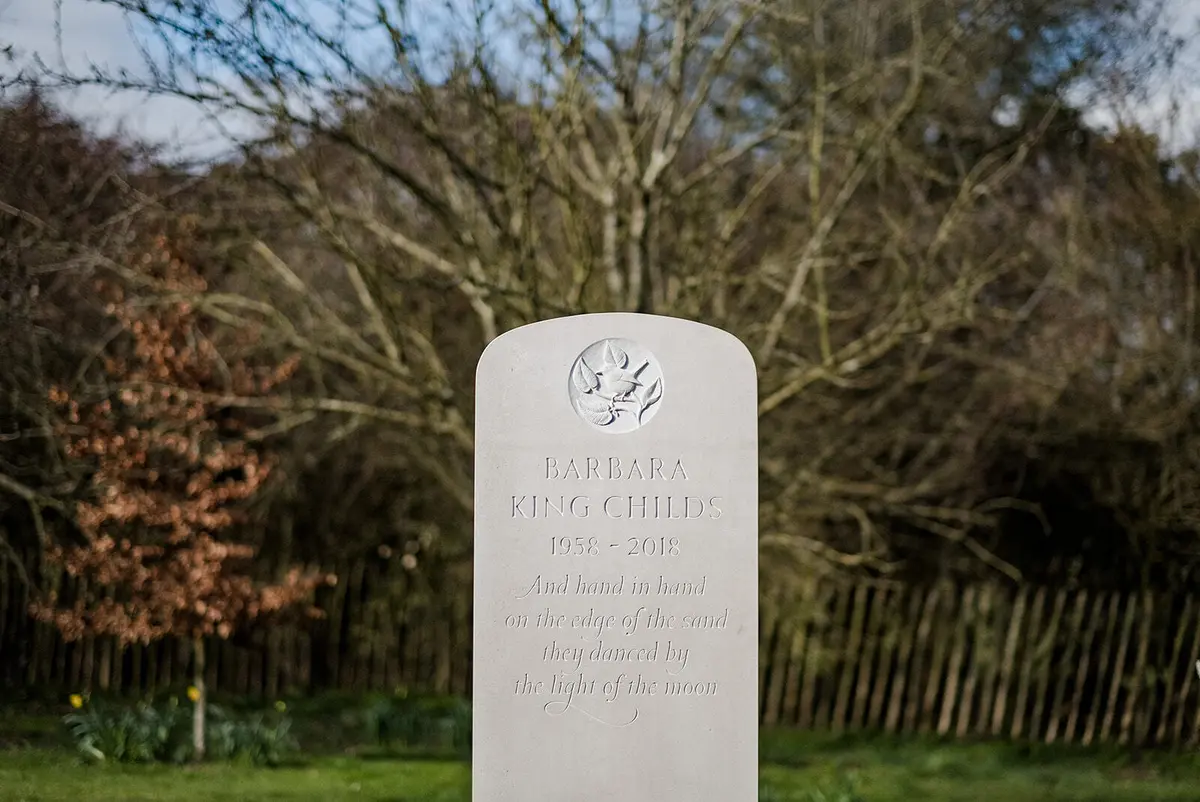
Poems make wonderful epitaph and I encourage people to search for unusual or unique poems that have not been overused by others. Sometimes one line from a poem can take on a meaning of its own far beyond the original poem, and the choice of poem may remain a mystery to those who one day read it in the future, but I think there is something very special in leaving a mystery, something to be pondered, speculated upon and even investigated as in this programme. What better gift can we leave future generations than an interesting headstone, with a poem that might inspire, ignite, challenge, delight or soothe?
Recenly I re-read one of my favourite novels The Eight Mountains by Paolo Cognetti. In the novel an epitaph is chosen for the protagonist's father which reads:
In memory is the most beautiful refuge.
This for me is a wonderful epitaph; it captures so much in a few words.
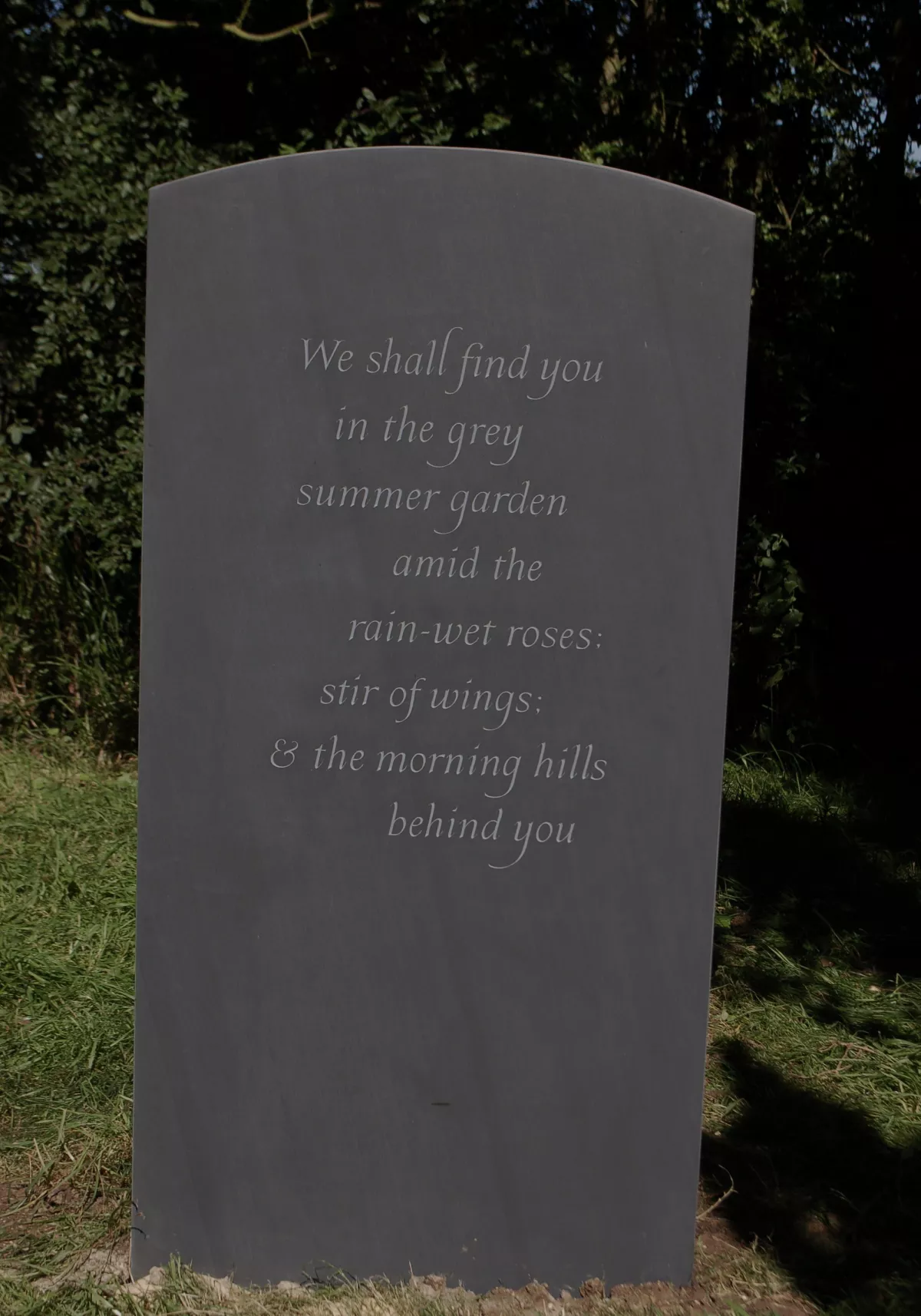
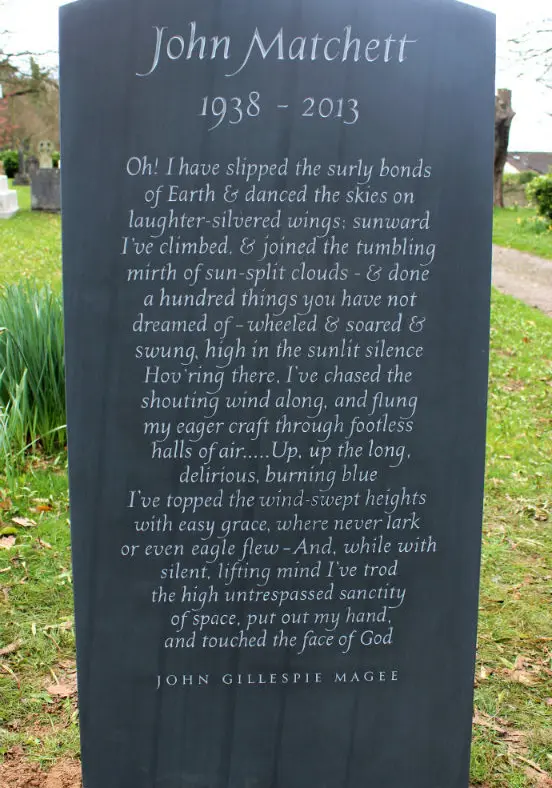
Below is a transcript of the part of the programme where Tom and I contributed :
Fergus: “So when you cut letters in slate, you get this white dust. And so you can see exactly where you're going. My old boss used to say the slate was invented by God for letter carvers. It's the perfect stuff.”
Fergus Wessel is a letter carver. A lot of his work is creating bespoke headstones and memorials. He's someone who has a huge amount of experience in advising people as they grapple with the task of choosing an epitaph. So the whole process actually in itself can be a healing process.
Fregus: “We try and involve the client as much as we can for that reason. We try and encourage people to come here first, initially, just to really, you know, have a look around, have a cup of coffee. And much of it is about trust. When they come, we are very much open. Some people know exactly what they want. Most people don't. Some people are quite upset. Many people are quite “stiff upper lip” about it, and which actually makes the job harder. “
Some clients come to Fergus very soon after a loved one's death. Others come years later. Some even commission their own headstones ahead of time.
Fergus: “When it comes to committing to that handful of words that will be etched in stone, often clients are frozen by indecision. They will always, you know, choose the material, everything else, the size, the proportions, everything else. And they'll leave the words to the end. But the words are the most important thing. The reason I think it's very hard is because there are no words. You can't really put these kind of emotions into words.
People think they have to fill the headstone with words, hoping to get to a point where they've said enough and pleased everybody
People think they have to fill the headstone with words, hoping to get to a point where they've said enough and pleased everybody. And I think it's not the right approach, really. So it's better to try and really find in words a feeling, so not be too direct, which is where poetry comes in, really.”
One source of inspiration Fergus encourages people to consider when deciding on an epitaph is poetry.
Fergus: “When I suggest poetry, people often run away from it. And I can see why, in a way. A lot of people don't really know about poetry, or understand poetry, or what it's for, or how it can be used.”
Dotted around the workshop, on the walls and shelves, are a number of poems carved into slate.
Fergus: “This is, yeah, again, but I don't know who's Bible, it's an old Persian love poem. And it goes something like this:
In the fifth month when orange trees fill all the world with scent, I think of the sleeve of the girl who loved me.
Assisting Fergus in the workshop is another letter carver, Tom Wiggins.
Tom: “I've carved Tennyson, I've carved Yeats, I've carved Ed and Thomas, the opening lines of Under Milk Wood.”
Fergus: “ We carved an inscription which inspired me an inscription which encircles a private cemetery in a churchyard. And it was Byron, and Tom can recite it.”
Tom: “ I can try to recite it.
There is a pleasure in the pathless woods,
There is a rapture on the lonely shore,
There is society where none intrudes,
By the deep Sea, and music in its roar:
I love not Man the less, but Nature more,
When you hear that poem, you want to carve it in a way that will get lost in a country churchyard, and which somebody will trip over and stumble across and find it, and then want to read it. If you're walking around in the morning and you're feeling quite lonely, then there's nothing better than a poem. And if a stranger passes your stone, and they read words which mean something to them, or it moves them, then the inscription lives on, it has a life. “
I have written several blog posts collecting epitaphs together on headstones. Here are the blog posts:
Headstone Epitaphs- 250 beautiful examples
Headstone Inscriptions & Epitaphs-Where do I begin?
Children’s Headstones - the most beautiful Epitaphs, Quotes and Inspiration.
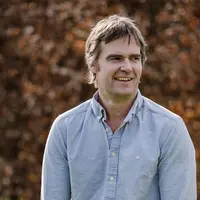
Fergus Wessel
Designer and letter-carver
Fergus created Stoneletters Studio in 2003, after training at the Kindersley Workshop. He is a member of the prestigious Master Carver's Association.


Request our free booklet today
- © 2026 Stoneletters
- Legal notice
- Privacy policy
- Disclaimer
